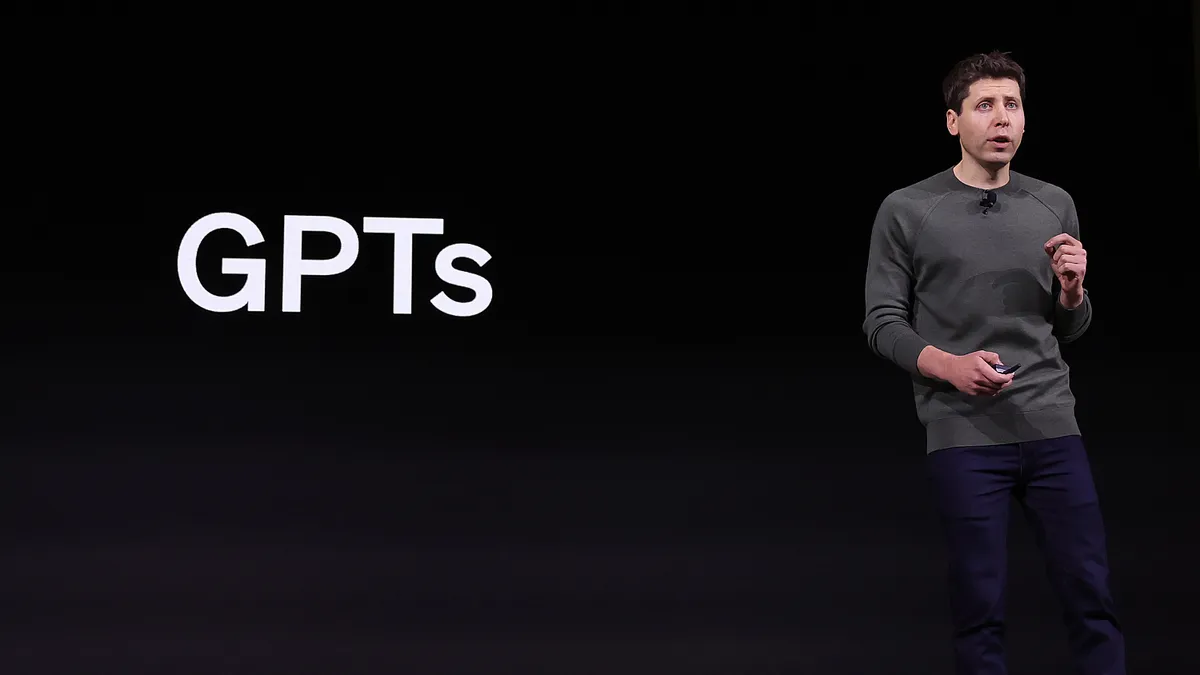Dive Brief:
- OpenAI is rolling out its anticipated GPT Store to ChatGPT Plus, Team and Enterprise users, the company said Wednesday. The company also unveiled the ChatGPT Team plan, designed for teams of all sizes to “get the most out of ChatGPT at work,” OpenAI said.
- ChatGPT Team users can access GPT-4 and its Vision, DALL·E 3 and Advanced Data Analysis features, in addition to a collaborative workspace for administration tools. OpenAI said it will not use business data or conversations to train its models.
- Enterprise customers will soon have access to the GPT Store along with “enhanced” administration controls, such as an option for internal-only GPTs, OpenAI said. GPT Store was initially slated to launch in November. The company did not immediately respond to a request for comment regarding the delay.
Dive Insight:
GPTs were announced at OpenAI’s DevDay in November, presented as customizable versions of ChatGPT that can carry out specific enterprise tasks. But in the following weeks, OpenAI went through a tumultuous period that included leadership oustings, threats of mass resignations, a board upheaval and the reinstatement of CEO Sam Altman.
The chaos led some enterprises to take a second look at their reliance on the young startup, with some feeling more comfortable with leveraging the technology via a Microsoft-sized shield. Now, OpenAI is creating an incentive for enterprises to reengage.
Instead of companies using OpenAI’s technology via a hyperscaler or other third-party entity, the company is signaling it wants enterprises to come to them, according to Vincent Yates, chief data scientist at Credera and founder of the AI Global Council.
“If it works, it’ll be a massive paradigm shift in how we deliver software and that’ll be worth paying attention to,” Yates said.
Anyone with a verified builder profile can share their GPTs in the store. The company also established a new review system, that includes human and automated reviews, to ensure GPTs align with OpenAI's policies.
The company plans to introduce a GPT builder revenue program that will pay builders based on user engagement, encouraging the proliferation of GPTs.
“What they’re explicitly trying to create is the App Store,” Yates said. “In the early days of the App Store, it was a bit pedantic, but it turned into a massive explosion of new technology.”














